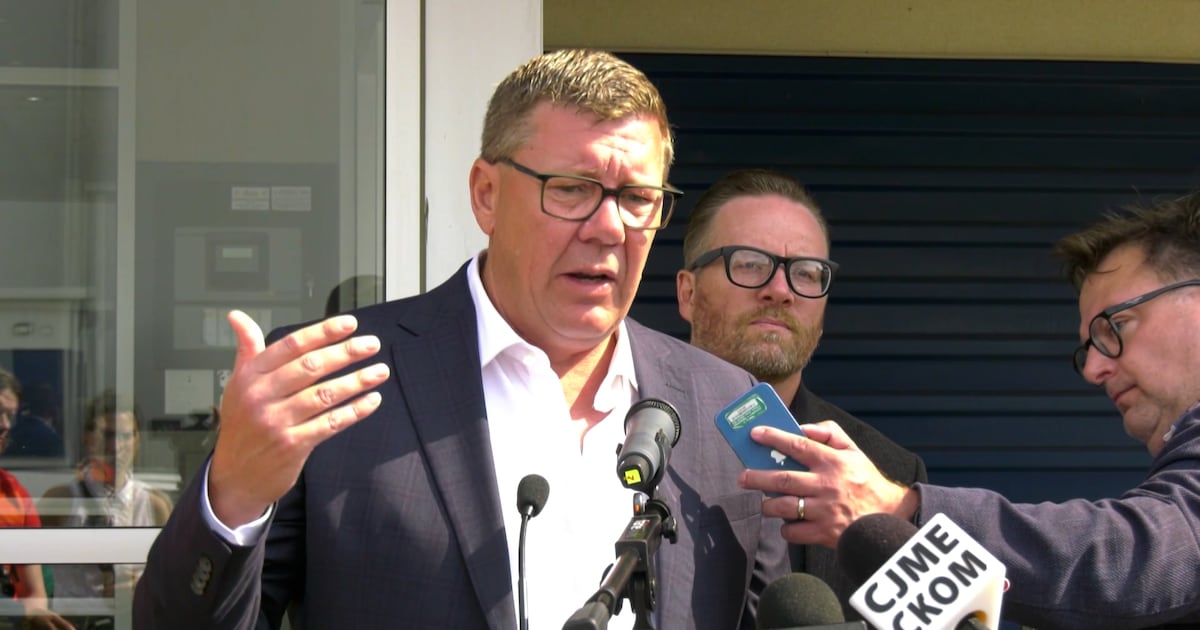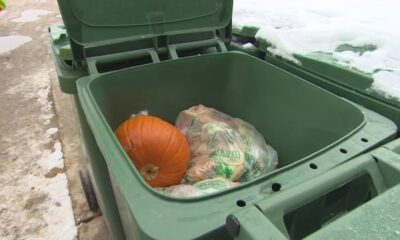Top Stories
Saskatchewan Premier Scott Moe Heads to China to End Canola Tariffs

BREAKING: Saskatchewan Premier Scott Moe is set to travel to China with a mission to negotiate an end to the soaring tariffs imposed on Canadian canola. This urgent trip aims to support the federal government’s efforts in addressing the tariffs, which have now surged to nearly 76 percent. Moe expressed hope that federal representatives will accompany him, signaling a united front in trade discussions.
In a press briefing earlier today, Moe stated, “We’re going to go to China… We’re hopeful that we’ll be able to support [the federal government] in putting an end to some of these trade tariffs.” This critical mission follows a temporary increase in tariffs announced late last week, with final decisions expected next month as China’s anti-dumping probe into Canadian canola continues.
The Premier has scheduled a meeting with federal officials and canola industry leaders in Saskatoon on Thursday, where key figures including the federal agriculture minister and the parliamentary secretary to the prime minister will be present. This gathering is pivotal, as it marks the beginning of collaborative efforts to lower trade barriers and restore access to the Chinese market for canola products, as well as other commodities such as peas, seafood, and pork.
Moe highlighted Saskatchewan’s unique position to lead these negotiations, given the province’s trade office in China has been operational for a decade. “Saskatchewan is the obvious advocate… to support the federal government in starting these discussions,” he stated, emphasizing the need for immediate action to secure favorable trade conditions.
The backdrop of this urgent development is a troubling one for Canadian farmers, as the increased tariffs are causing significant price drops and anxiety within the agricultural sector. The canola industry alone is valued at $45 billion, providing jobs for over 200,000 Canadians, many of whom are directly affected by these tariffs.
Moe’s visit to China is not just about canola; it represents a broader push for Canadian agricultural interests. The Premier recently visited Yorkton to announce improvements to the Grain Millers Road, a vital access route for grain handling facilities, including Richardson Oilseed—the largest canola crush plant in North America. He described this announcement as a “vote of confidence” in the canola industry amidst the turmoil caused by escalating trade tensions.
As discussions unfold, all eyes will be on the outcome of the meetings in Saskatoon and the anticipated negotiations in China. The urgency of the situation cannot be overstated; farmers and industry leaders are watching closely to see if this diplomatic effort can reverse the damaging trade policies that have placed the Canadian canola industry in jeopardy.
With the stakes high, the next steps are critical. Will Premier Moe’s efforts lead to a breakthrough in trade relations with China? The agriculture community and Canadian consumers alike await answers as these developments progress.
-

 Politics4 weeks ago
Politics4 weeks agoSecwepemc First Nation Seeks Aboriginal Title Over Kamloops Area
-

 World5 months ago
World5 months agoScientists Unearth Ancient Antarctic Ice to Unlock Climate Secrets
-

 Entertainment5 months ago
Entertainment5 months agoTrump and McCormick to Announce $70 Billion Energy Investments
-

 Science5 months ago
Science5 months agoFour Astronauts Return to Earth After International Space Station Mission
-

 Lifestyle5 months ago
Lifestyle5 months agoTransLink Launches Food Truck Program to Boost Revenue in Vancouver
-

 Technology3 months ago
Technology3 months agoApple Notes Enhances Functionality with Markdown Support in macOS 26
-

 Lifestyle3 months ago
Lifestyle3 months agoManitoba’s Burger Champion Shines Again Amid Dining Innovations
-

 Top Stories2 months ago
Top Stories2 months agoUrgent Update: Fatal Crash on Highway 99 Claims Life of Pitt Meadows Man
-

 Politics4 months ago
Politics4 months agoUkrainian Tennis Star Elina Svitolina Faces Death Threats Online
-

 Sports5 months ago
Sports5 months agoSearch Underway for Missing Hunter Amid Hokkaido Bear Emergency
-

 Politics5 months ago
Politics5 months agoCarney Engages First Nations Leaders at Development Law Summit
-

 Technology5 months ago
Technology5 months agoFrosthaven Launches Early Access on July 31, 2025





















